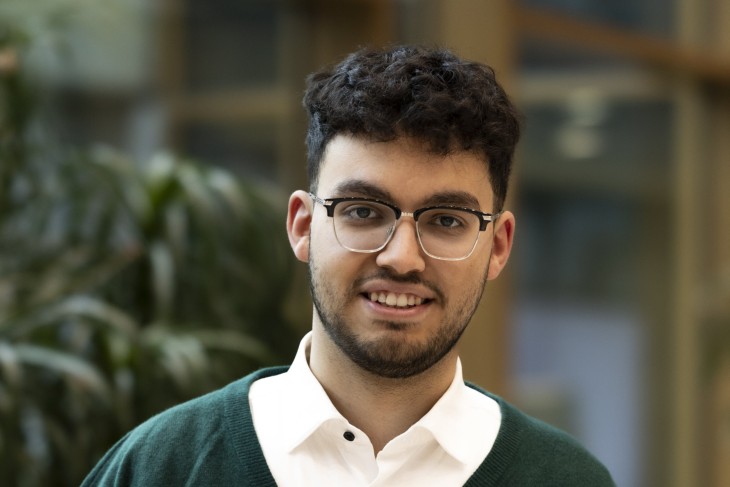“The world is changing fast: cities are growing, and it’s becoming difficult to manage everything from increasing housing needs to heavy traffic. Civil engineering tackles many of these problems. As a civil engineer, you can design new neighbourhoods to improve citizens' quality of life, better roads to optimise traffic flow, and dikes to create flood defences for low-lying areas.
It was exactly this broad scope that drew me to Civil Engineering. When I was deciding what to study, I considered architecture and building sciences, but civil engineering covers everything from traffic and transport to water management. I wanted something technical that had a clear impact on society, and civil engineering fit perfectly.
Working on real-world problems
One of the coolest things about this study programme is the variety of projects you get to work on. Each module presents a new challenge where you apply what you've learned to solve real-world problems. For example, in one project, we designed a dam and modelled how water would flow and flood the area behind it. This taught us how to use modelling software to predict an actual flood.
Another project involved designing a parking garage here in Enschede. It was hard: we started with the Dutch building regulations, created a complete design from scratch, and did all the necessary calculations. We even visited the site and talked to city officials about what they needed so that we could design the garage in the best possible way.
The most challenging part of these projects was often creating the models, especially when it came to writing Python code, which is a programming language used to create simulations and models. Sometimes I spent a whole day fixing errors and making sure the models worked correctly.
The study programme
The study programme is divided into eight modules, each focusing on a specific aspect of civil engineering like water management, traffic and transport, and construction. Civil Engineering requires a mix of knowledge in physics, maths, mechanics, communication skills, and management abilities: you need to understand theoretical concepts and be able to work well with others to manage projects effectively.
I found the courses in stakeholder management, financial management, and circular economy pretty interesting. You learn to think about who is participating in a project, who is affected, how these people can collaborate in the best possible way, and how you can design a functional solution that suits all of them. That’s how you learn to work with many different people and develop solutions that suit everyone.
My future
At the start of my studies, my main interest was in construction and transport, and after my first year, I found that I enjoyed transport the most. Thanks to the lunch lectures organised by the study association ConcepT, where companies presented their projects, I realised that I’m most interested in the theoretical aspects of transport. This includes understanding how traffic flows, the maths and physics of vehicle movement, the design of transport networks, and the algorithms used to manage and optimise traffic. I want to continue with the Master’s in Civil Engineering & Management at the University of Twente, which I believe will equip me with the skills to tackle even bigger challenges in the future.”



